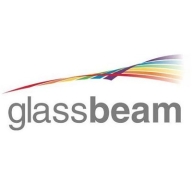

Splunk Enterprise Security and Glassbeam compete in the data analytics domain. Splunk often has the upper hand due to its robust threat intelligence capabilities and adaptability to security operation centers.
Features: Splunk Enterprise Security provides real-time threat detection, investigative capabilities, and comprehensive dashboards. Glassbeam is known for its powerful data parsing and transformation with a unique focus on complex machine logs and IoT data analysis.
Ease of Deployment and Customer Service: Splunk offers a steeper learning curve but benefits from scalability and extensive technical support. Glassbeam ensures a simpler deployment process with quicker start-up times and dedicated support.
Pricing and ROI: Splunk involves significant initial investment but delivers high ROI through scalability and security features, while Glassbeam presents a cost-effective pricing strategy with potentially faster ROI due to its straightforward deployment.

Glassbeam Big Data Platform and applications helps your support teams troubleshoot faster, allows your engineering teams to build better
products and provides up-sell visibility for sales teams to increase revenues.
Our proprietary end-to-end solutions for IoT Analytics are powered by our patent-pending semiotic parsing language (SPL) and SCALAR hyper scale platform. Our platform enables our clients to ingest, parse and analyze complex machine data logs of usage, performance, configuration, and settings information. It can handle all types of machine log data, regardless of variety (structured, unstructured or semi-structured), velocity (streaming and batch uploads), and volume (retention over 3-4 years or more).
Splunk Enterprise Security is widely used for security operations, including threat detection, incident response, and log monitoring. It centralizes log management, offers security analytics, and ensures compliance, enhancing the overall security posture of organizations.
Companies leverage Splunk Enterprise Security to monitor endpoints, networks, and users, detecting anomalies, brute force attacks, and unauthorized access. They use it for fraud detection, machine learning, and real-time alerts within their SOCs. The platform enhances visibility and correlates data from multiple sources to identify security threats efficiently. Key features include comprehensive dashboards, excellent reporting capabilities, robust log aggregation, and flexible data ingestion. Users appreciate its SIEM capabilities, threat intelligence, risk-based alerting, and correlation searches. Highly scalable and stable, it suits multi-cloud environments, reducing alert volumes and speeding up investigations.
What are the key features?Splunk Enterprise Security is implemented across industries like finance, healthcare, and retail. Financial institutions use it for fraud detection and compliance, while healthcare organizations leverage its capabilities to safeguard patient data. Retailers deploy it to protect customer information and ensure secure transactions.
We monitor all IT Operations Analytics reviews to prevent fraudulent reviews and keep review quality high. We do not post reviews by company employees or direct competitors. We validate each review for authenticity via cross-reference with LinkedIn, and personal follow-up with the reviewer when necessary.